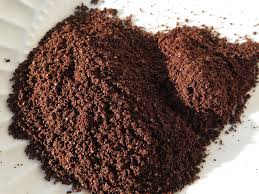Caffeine is a stimulant that can increase alertness and reduce drowsiness. The effects of caffeine can vary from person to person, so individual tolerance may differ. will 25mg of caffeine keep me awake? Factors such as your overall caffeine consumption, metabolism, and sensitivity to caffeine can also influence how it affects you.
The effect of 25mg of caffeine on your alertness or ability to stay awake can vary depending on several factors, such as your individual sensitivity to caffeine, your usual caffeine intake, and your overall health.
For most people, 25mg is considered a low dose of caffeine. To put this into perspective, a typical cup of coffee contains about 95mg of caffeine, and even a cup of tea can have 25-50mg. Some people may feel a mild increase in alertness with 25mg of caffeine, especially if they are not regular caffeine consumers or are particularly sensitive to its effects.
If you regularly consume caffeine, this amount may not have a significant impact on your wakefulness. Caffeine tolerance can develop quickly, meaning the more caffeine you consume regularly, the less effect a small amount like 25mg might have.
Other factors, such as your overall sleep health, stress levels, and diet, as they can also influence how awake and alert you feel. If you’re trying to stay awake for a specific reason, like studying or driving, it’s generally better to rely on natural methods like taking breaks, getting fresh air, or engaging in light physical activity, rather than depending solely on caffeine.
Will 50 mg of caffeine keep me awake?
The effect of 50mg of caffeine on your ability to stay awake can also vary, similar to the 25mg dose, but it is generally more likely to have a noticeable impact.
For context, 50mg of caffeine is roughly half the amount found in an average cup of coffee. This dose is enough to produce a mild stimulating effect in most people, particularly those who have low caffeine tolerance or do not consume caffeine regularly. It can lead to increased alertness, reduced feelings of fatigue, and a slight improvement in concentration.
The response to caffeine is highly individual. Factors such as your body weight, metabolism, sensitivity to caffeine, and the amount of caffeine you regularly consume play a significant role. If you are a habitual caffeine consumer, 50mg might not have a strong effect due to developed tolerance.
while caffeine can help to temporarily ward off sleepiness, it’s not a substitute for sleep. Relying on caffeine to stay awake can disrupt your sleep cycle and lead to reduced sleep quality over time. It’s also important to consider that caffeine can take several hours to wear off, which might affect your ability to sleep later on.
Everyone reacts differently to caffeine, so it’s important to be mindful of your own body’s response and not exceed safe intake levels. The FDA has cited 400 milligrams a day as an amount not generally associated with dangerous, negative effects in healthy adults.
Can’t sleep after drinking coffee in the morning.

If you’re having trouble sleeping after drinking coffee in the morning, it could be due to a few reasons:
Caffeine Sensitivity: Some people are more sensitive to caffeine than others. Even if you drink it in the morning, the stimulant effects of caffeine could linger in your system for a long time, affecting your ability to fall asleep at night.
Amount of Caffeine Consumed: The more caffeine you consume, the longer its effects can last. If you’re drinking a lot of coffee or consuming other caffeinated products throughout the day, this could be contributing to your sleep difficulties.
Caffeine Half-life: The half-life of caffeine in your body (the time it takes for half of the caffeine to be eliminated from your system) is typically about 5 to 6 hours, but it can be longer in some individuals. This means that caffeine consumed in the morning could still be in your system by bedtime.
Other Factors: Factors such as stress, anxiety, dietary habits, and overall sleep hygiene also significantly affect sleep. It’s possible that caffeine is exacerbating underlying issues.
To improve your sleep:
- Limit Caffeine Intake: Consider reducing the amount of coffee you drink or switch to decaffeinated versions.
- Monitor Caffeine Timing: Try to consume caffeine earlier in the day and avoid it in the afternoon and evening.
- Improve Sleep Hygiene: Establish a regular sleep schedule, create a relaxing bedtime routine, and ensure your sleeping environment is conducive to rest.
- Lifestyle Changes: Regular physical activity and a balanced diet can also positively impact your sleep quality.
- Consult a Healthcare Professional: If sleep problems persist, it might be helpful to speak with a healthcare provider to rule out any underlying conditions and get personalized advice.
Q: How does caffeine work to keep you awake?
A: Caffeine functions as a stimulant by blocking the effects of adenosine, a neurotransmitter that promotes relaxation and sleep. This inhibition leads to increased alertness and a decreased perception of fatigue.
Q: When should you stop drinking coffee to avoid its impact on sleep?
A: It’s advisable to refrain from consuming caffeinated beverages at least 6 hours before your intended bedtime to minimize their potential disruptive effects on sleep.
Q: How does caffeine affect sleep hygiene?
A: Excessive caffeine consumption can disrupt sleep hygiene by interfering with the body’s natural sleep-wake cycle and promoting difficulty in falling asleep, leading to poorer overall sleep quality.
Q: Can caffeine affect sleep disorders?
A: Yes, caffeine intake can exacerbate sleep disorders such as insomnia and restless leg syndrome, worsening symptoms and disrupting the normal sleep patterns of individuals affected by these conditions.
Q: How does caffeine impact the content of sleep?
A: The presence of caffeine in the body can reduce the amount of deep sleep obtained, resulting in less restorative and rejuvenating sleep, and potentially leading to feelings of grogginess upon waking.
Q: What are some strategies for better sleep when it comes to caffeine consumption?
A: Adopting strategies such as limiting caffeine intake, avoiding consumption in the hours leading up to bedtime, and being mindful of the total daily caffeine consumed can all contribute to better sleep quality.
Q: Are there recommended guidelines for daily caffeine consumption for better sleep?
A: The Sleep Foundation suggests that limiting daily caffeine intake to 200 milligrams or less, and avoiding consumption in the late afternoon or evening, can aid in achieving better sleep and preventing sleep disturbances.


Leave a Reply